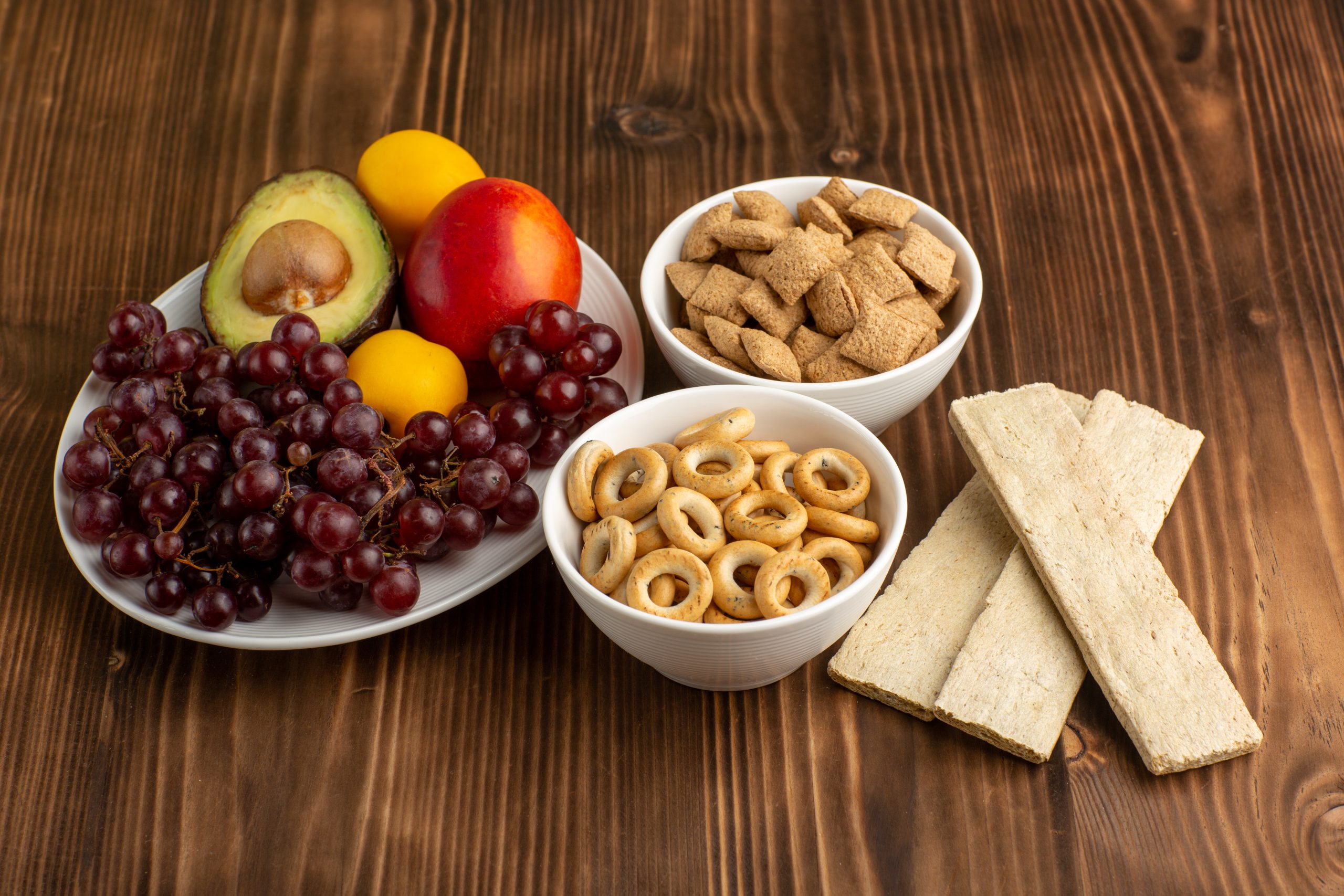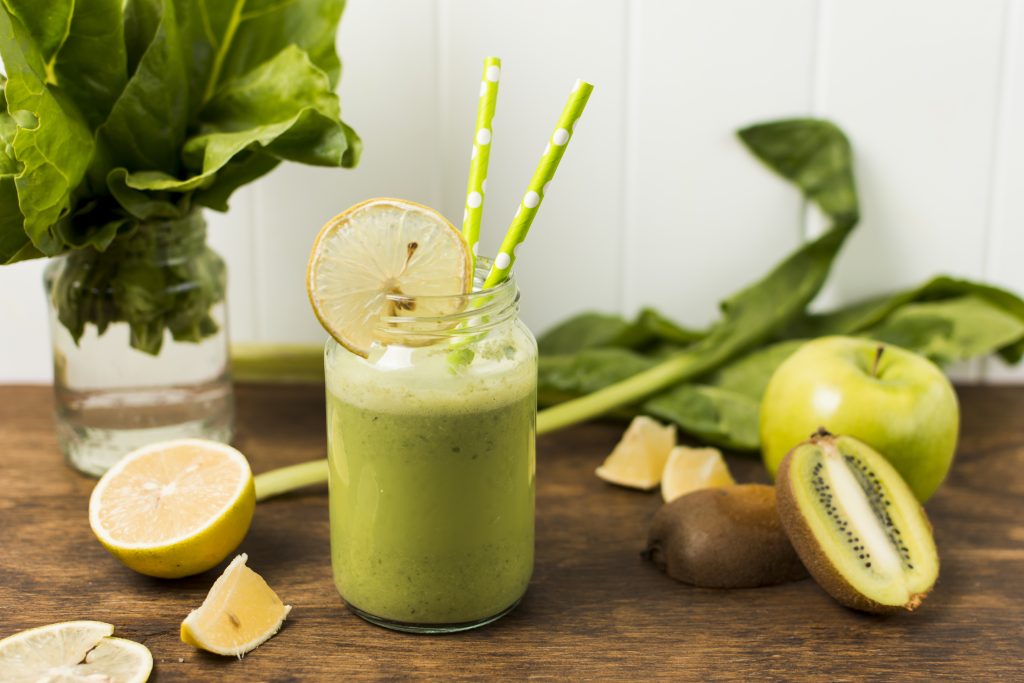Table Of Contents
-
Key Highlights
- Top Bedtime Snacks for Diabetics Backed by Science
- How Fiber and Protein Help Control Blood Sugar at Night
- The Role of Pistachios and Plant-Based Snacks in Diabetes Management
- Portion Control and Timing: When and How Much to Snack
- Practical Snack Ideas and Preparation Tips
-
Common Myths and Misconceptions About Bedtime Snacking in Diabetes
-
Frequently Asked Questions
-
Conclusion
-
References
If you’re living with diabetes, you’ve probably wondered whether eating before bed is a good idea. The truth is, choosing the right bedtime snack can actually help stabilize your blood sugar levels throughout the night and even improve your morning glucose readings. Recent clinical research from the University of Thessaly has revealed that specific snacks—particularly those high in fiber and protein—can help reduce postprandial glucose spikes compared to traditional snacks.
The key isn’t avoiding bedtime snacks altogether. It’s about selecting the right combination of nutrients at the right time. Whether you’re concerned about nighttime hypoglycemia or want to wake up with better blood sugar control, understanding which snacks work best can transform your diabetes management. Let’s explore what the latest science tells us about the best bedtime snack for diabetics.
Key Highlights
- Plant-based snack bars with high protein and fiber can reduce postprandial glucose and insulin spikes in type 2 diabetics, with clinical trials showing significantly lower blood sugar responses compared to traditional snacks.
- Pistachios as a bedtime snack may beneficially reshape your gut microbiome, according to Penn State research, supporting better glucose regulation in people with prediabetes.
- The ideal bedtime snack contains 15-30 grams of carbohydrates, focusing on complex carbs and fiber rather than simple sugars that spike blood glucose levels.
- Protein and fiber-rich snacks slow glucose absorption and improve satiety overnight, helping you avoid both nighttime and morning blood sugar fluctuations.
- Antioxidant-rich ingredients in carefully selected snacks may reduce oxidative stress linked to diabetes complications, offering benefits beyond simple glucose control.
- Timing and portion size matter as much as snack composition—eating 1-2 hours before bed with controlled portions prevents hyperglycemia while avoiding hypoglycemia risk.
- Avoid high-sugar, high-fat, and processed snacks before bed to maintain stable blood sugar levels and prevent unnecessary spikes that disrupt sleep and morning glucose readings.
Top Bedtime Snacks for Diabetics Backed by Science
Not all bedtime snacks are created equal, especially when you’re managing diabetes. Recent clinical trials have identified specific foods that consistently outperform traditional snack choices in controlling blood glucose responses. These evidence-based options offer practical solutions for your nighttime nutrition needs.
Plant-Based Snack Bars with Functional Ingredients
A groundbreaking 2024 study published in MDPI Foods journal examined the effects of specially formulated plant-based snack bars on people with type 2 diabetes. These bars contained approximately 24 grams of carbohydrates along with mushroom powder, soy protein, and dietary fiber. The results were impressive: participants experienced significantly lower postprandial glucose rises compared to eating whole grain bread with low-fat cheese.
What makes these snack bars particularly effective? They combine several diabetes-friendly elements: high dietary fiber content that slows glucose absorption, plant-based protein that promotes satiety, and antioxidant-rich ingredients like mushroom powder that may help reduce oxidative stress. The clinical trial reported a 90% acceptance rate among diabetic patients, suggesting these bars are both effective and palatable for long-term use.
Top Bedtime Snacks for Diabetics: Clinical Evidence Comparison
| Snack Name | Carbs (g) | Protein (g) | Fiber (g) | Glycemic Impact | Blood Sugar Friendliness | Key Benefits |
|---|---|---|---|---|---|---|
| Plant-Based Snack Bar | 24 | 8-10 | 5-7 | Low | ★★★★★ | Lower glucose spike, antioxidants |
| Pistachios (2 oz) | 16 | 12 | 6 | Low | ★★★★★ | Gut microbiome support, healthy fats |
| Greek Yogurt + Berries | 20 | 15 | 3 | Low | ★★★★☆ | High protein, probiotics, vitamin C |
| Apple + Almond Butter | 18 | 4 | 4 | Low | ★★★★☆ | Fiber, healthy fats, satisfying |
| Cottage Cheese + Cucumber | 8 | 14 | 1 | Very Low | ★★★★☆ | Highest protein, minimal carbs |
| Whole Grain + Cheese | 28 | 8 | 3 | Moderate | ★★★☆☆ | Complex carbs, calcium, traditional |
| Hard-Boiled Eggs + Crackers | 15 | 13 | 2 | Low | ★★★★☆ | Complete protein, B vitamins, portable |
| Hummus + Vegetables | 12 | 6 | 4 | Low | ★★★★☆ | Plant protein, high fiber, low calorie |
Pistachios: A Gut-Healthy Nighttime Choice
Pistachios have emerged as a standout option for bedtime snacking in people with prediabetes and diabetes. Research from Penn State University in 2025 revealed that nighttime pistachio consumption can beneficially reshape the gut microbiome, which plays a crucial role in glucose metabolism and insulin sensitivity.
A standard serving of about 2 ounces of pistachios provides the right balance of nutrients without overwhelming your blood sugar. They contain healthy fats, protein, and fiber—a trifecta that helps moderate glucose absorption. The Penn State study suggests that the metabolic benefits extend beyond immediate glucose control, potentially supporting long-term diabetes management through improved gut health and reduced inflammation.
Traditional Options That Still Work
While newer research focuses on specialized snacks, some traditional options remain effective when properly portioned. Whole grain bread paired with low-fat cheese provides complex carbohydrates and protein, though studies show it produces a higher glucose response than specialized plant-based bars. Other reliable choices include:
- Greek yogurt (unsweetened) with a small handful of berries—combining protein, probiotics, and low-glycemic fruit
- Apple slices with almond butter—offering fiber, healthy fats, and controlled carbohydrates
- Cottage cheese with cucumber—providing high protein with minimal carbohydrate impact
- Hard-boiled eggs with whole grain crackers—delivering sustained energy from protein and complex carbs
The CDC’s diabetes nutrition guidelines emphasize choosing snacks that combine protein or healthy fats with complex carbohydrates to achieve the most stable glucose response overnight.
How Fiber and Protein Help Control Blood Sugar at Night
Understanding the mechanisms behind effective bedtime snacks helps you make informed choices. Dietary fiber and protein work through different pathways to regulate glucose absorption and insulin response, making them essential components of any diabetic snack strategy.
The Role of Dietary Fiber in Glucose Control
Dietary fiber, especially soluble fiber, creates a gel-like substance in your digestive tract that slows the absorption of glucose into your bloodstream. This gradual release prevents the sharp spikes that can occur with simple carbohydrates. According to DASH diet guidelines, consuming more than 25 grams of fiber daily is linked to reduced diabetes complications.
The clinical trial on plant-based snack bars demonstrated this effect clearly. Participants consuming high-fiber bars showed significantly lower postprandial glucose peaks compared to lower-fiber alternatives. This isn’t just about immediate blood sugar control—consistent fiber intake improves long-term glycemic control by enhancing insulin sensitivity and supporting beneficial gut bacteria that regulate metabolism.
Protein's Impact on Insulin Response
Protein-rich snacks affect blood sugar differently than carbohydrates. While protein can trigger some insulin release, it doesn’t cause glucose spikes. Instead, it promotes satiety and slows gastric emptying, which means carbohydrates you consume with protein are absorbed more gradually.
Macro Nutrient Breakdown: Ideal vs Popular Bedtime Snacks
| Snack Type | Calories | Carbs (g) | Protein (g) | Fiber (g) | Fat (g) | Glycemic Index |
|---|---|---|---|---|---|---|
| IDEAL RANGE | 150-200 | 15-30 | 10-15 | 3-7 | 5-10 | < 55 (Low) |
| Plant-Based Bar | 180 | 24 | 9 | 6 | 7 | 42 (Low) |
| Pistachios (2 oz) | 160 | 16 | 12 | 6 | 13 | 15 (Very Low) |
| Greek Yogurt + Berries | 170 | 20 | 15 | 3 | 4 | 35 (Low) |
| Whole Grain + Cheese | 220 | 28 | 8 | 3 | 9 | 58 (Medium) |
| SUGARY SNACK (Avoid) | 250 | 45 | 2 | 0 | 8 | 72 (High) |
Research published in systematic reviews on meal replacements supports the use of protein-enriched snacks for type 2 diabetes management. When you eat a bedtime snack containing 10-15 grams of protein along with your carbohydrates, you create a more stable overnight glucose profile. This combination helps prevent both the nighttime lows that can occur from dinner insulin and the morning highs caused by the dawn phenomenon.
The Glycemic Index Factor
The glycemic index (GI) measures how quickly foods raise blood sugar levels. Low-GI foods cause gradual increases, while high-GI foods spike glucose rapidly. Ideal bedtime snacks have a low to moderate glycemic index, typically below 55. Complex carbohydrates found in whole grains, legumes, and certain fruits fall into this category, making them better choices than white bread, pastries, or sugary snacks.
Combining low-GI carbohydrates with protein and fiber creates what nutritionists call a “balanced snack” that minimizes glucose fluctuations. MedlinePlus diabetic diet resources emphasize this balanced approach as fundamental to effective diabetes management.
The Role of Pistachios and Plant-Based Snacks in Diabetes Management
Beyond basic macronutrient composition, emerging research reveals that specific food choices can influence gut health and inflammation—both critical factors in diabetes management. Pistachios and plant-based snacks offer unique benefits that extend beyond simple glucose control.
Gut Microbiome and Metabolic Health
Your gut microbiome—the trillions of bacteria living in your digestive system—plays a surprisingly important role in blood sugar regulation. The Penn State pistachio study discovered that nighttime consumption of these nuts altered gut bacteria composition in ways that support glucose metabolism.
Beneficial bacteria ferment the fiber in pistachios, producing short-chain fatty acids that improve insulin sensitivity and reduce inflammation. This process happens while you sleep, potentially setting you up for better blood sugar control the following day. The timing of pistachio consumption appears significant—eating them before bed may maximize these microbiome benefits during your body’s natural overnight repair processes.
Antioxidant and Anti-Inflammatory Properties
Chronic inflammation contributes to insulin resistance and diabetes complications. Antioxidant-rich foods counter this by neutralizing free radicals and reducing oxidative stress. The plant-based snack bar study specifically measured antioxidant properties, finding that bars containing mushroom powder and other functional ingredients significantly improved participants’ antioxidant status.
Blood Sugar Response Timeline: Different Snack Types Over 4 Hours
 Note:
Note:
This table shows a hypothetical example only. Individual blood sugar responses vary widely based on many factors including current blood sugar levels, medications, insulin sensitivity, activity level, and personal metabolism. Always monitor your own blood sugar patterns with guidance from your healthcare provider.
| Time Point | Plant-Based Bar | Pistachios | Whole Grain + Cheese | Sugary Snack | Trend |
|---|---|---|---|---|---|
| Baseline (0 min) | 100 mg/dL | 100 mg/dL | 100 mg/dL | 100 mg/dL | → Stable |
| 30 Minutes | 115 mg/dL | 108 mg/dL | 130 mg/dL | 165 mg/dL | ↑ Rising |
| 1 Hour (Peak) | 140 mg/dL | 125 mg/dL | 165 mg/dL | 190 mg/dL | ↑↑ Peak |
| 2 Hours | 120 mg/dL | 115 mg/dL | 135 mg/dL | 125 mg/dL | ↓ Declining |
| 4 Hours | 105 mg/dL | 102 mg/dL | 110 mg/dL | 85 mg/dL | → Stable |
 Key Findings:
Key Findings:
Plant-based bars and pistachios maintain stable levels (green), whole grain causes moderate rise (yellow), sugary snacks create spike-crash pattern (red). Target range: 80-140 mg/dL for bedtime snacks.
Pistachios contain polyphenols, vitamin E, and carotenoids—all powerful antioxidants. Plant-based ingredients like mushroom powder add beta-glucans and ergothioneine, compounds with demonstrated anti-inflammatory effects. Including these antioxidant-rich foods in your bedtime routine may help protect against long-term diabetes complications while supporting immediate glucose control.
Plant-Based Proteins and Complete Nutrition
Plant-based proteins from sources like soy, peas, and nuts offer advantages for diabetics. They typically come packaged with fiber and beneficial phytonutrients that animal proteins lack. The clinical trial on plant-based snack bars used soy protein as a primary ingredient, which provides all essential amino acids while delivering isoflavones that may improve insulin sensitivity.
Research published in reviews on fermented foods suggests that certain plant-based ingredients, especially fermented ones, enhance nutrient absorption and provide additional metabolic benefits. This makes plant-based bedtime snacks particularly valuable for people seeking comprehensive diabetes management rather than just glucose control.
Portion Control and Timing: When and How Much to Snack
Even the healthiest snack can backfire if you eat too much or time it poorly. Understanding proper portions and optimal timing helps you maximize the benefits of bedtime snacking while avoiding potential pitfalls.
The 15-30 Gram Carbohydrate Rule
Most diabetes nutrition experts recommend keeping bedtime snacks between 15 and 30 grams of carbohydrates. This amount provides enough glucose to prevent nighttime hypoglycemia without causing hyperglycemia. The University of Thessaly study used snack bars with approximately 24 grams of carbohydrates, fitting perfectly within this range.
To visualize this amount, consider these examples:
- 15g carbs: 1 small apple with 1 tablespoon almond butter
- 20g carbs: 2 ounces pistachios or 1 specially formulated plant-based bar
- 25g carbs: ¾ cup Greek yogurt with ½ cup berries
- 30g carbs: 1 slice whole grain bread with 1 ounce cheese and sliced vegetables
Your individual needs may vary based on your medication regimen, activity level, and blood sugar patterns. Working with your healthcare provider or diabetes educator helps you determine your optimal carbohydrate amount.
Optimal Timing for Bedtime Snacks
Timing matters almost as much as composition. Eating too close to bedtime can interfere with sleep and digestion, while snacking too early might leave you vulnerable to nighttime lows. Most experts recommend eating your bedtime snack 1-2 hours before you plan to sleep.
According to chrononutrition research, this timing allows initial digestion to occur before lying down, reducing the risk of reflux while ensuring glucose is available when your body needs it during sleep. If you take long-acting insulin or certain diabetes medications, this timing also aligns better with their peak action periods.
Bedtime Snack Timing Guide: When and What to Eat
| Your Situation | Blood Sugar at Bedtime | Recommended Timing | Snack Size | Best Snack Type |
|---|---|---|---|---|
| Taking Long-Acting Insulin | 120-150 mg/dL | 1-2 hours before bed | 15-20g carbs | Protein-rich: Greek yogurt, cottage cheese |
| Risk of Night Hypoglycemia | < 120 mg/dL | 30-60 min before bed | 20-30g carbs | Complex carbs + protein: PB bar, pistachios |
| Dawn Phenomenon (High AM) | 100-140 mg/dL | 2 hours before bed | 15-20g carbs | High-fiber: Plant-based bar, apple + nuts |
| Evening Exercise | Varies | Within 30 min post-workout | 30-45g carbs | Protein + carbs: Yogurt parfait, bar + fruit |
| Stable Control (No Meds) | 90-120 mg/dL | 1-2 hours before bed | 10-15g carbs | Low-carb: Pistachios, veggies + hummus |
| Blood Sugar > 180 mg/dL | > 180 mg/dL | Skip snack | 0g carbs | Wait until levels normalize, consult provider |
| Type 1 Diabetes on Pump | 100-150 mg/dL | 1 hour before bed | 15-25g carbs | Bolus + snack: Count carbs accurately |
Pro Tip:
Always check blood sugar before bed and 2-3 hours after your snack to understand your individual response pattern. Log results to identify your optimal timing and portions.
Adjusting for Medication and Activity
Your bedtime snack strategy should align with your specific diabetes management plan. If you take insulin or medications that increase hypoglycemia risk, a bedtime snack becomes more important. The CDC’s diabetes eating guidelines note that people on these medications should work with their healthcare team to determine if and when bedtime snacks are necessary.
Similarly, if you exercise in the evening, you may need a larger or differently composed snack to replenish glycogen stores and prevent overnight lows. Athletes and active individuals with diabetes often require 30-45 grams of carbohydrates after evening workouts, compared to the standard 15-30 gram recommendation for sedentary evenings.
Practical Snack Ideas and Preparation Tips
Knowing what makes a good bedtime snack is one thing; having practical, easy-to-prepare options ready is another. These strategies help you maintain consistency in your bedtime nutrition without spending excessive time on preparation.
Quick No-Cook Options
Convenience matters when you’re tired at the end of the day. These options require minimal preparation:
- Pistachios (2 oz) with a small pear – Provides healthy fats, protein, fiber, and microbiome benefits
- Greek yogurt parfait (¾ cup yogurt, ½ cup berries, 1 tbsp ground flaxseed) – Combines protein, probiotics, antioxidants, and omega-3s
- Plant-based protein bar (specially formulated for diabetics) – Pre-portioned with balanced macronutrients
- Hummus (⅓ cup) with carrot and celery sticks – Offers plant protein, fiber, and minimal carbs
- Hard-boiled eggs (2) with cucumber slices – High protein, low carb, filling option
Batch-Prepared Snacks for the Week
Spending an hour on meal prep gives you grab-and-go options all week. Try these batch preparation ideas:
- Portion pistachios into 2-ounce containers for perfect servings
- Prepare Greek yogurt parfaits in individual jars, adding berries fresh each night
- Make homemade energy balls with oats, nut butter, and protein powder
- Pre-cut vegetables and portion hummus into small containers
- Hard-boil a dozen eggs for protein-rich snacking throughout the week
According to MedlinePlus diabetes nutrition guidance, preparing snacks in advance increases adherence to healthy eating patterns and reduces the temptation to choose less appropriate options when you’re hungry and tired.
Reading Labels on Pre-Packaged Options
If you opt for convenience foods like protein bars or pre-packaged snacks, scrutinize the labels carefully. Look for:
- Total carbohydrates: 15-30 grams per serving
- Dietary fiber: At least 3-5 grams (higher is better)
- Protein content: Minimum 5-10 grams
- Added sugars: Less than 5 grams
- Sodium: Under 200mg if possible
- Ingredient quality: Whole food ingredients, minimal processing
The clinical studies on plant-based snack bars used products specifically formulated with functional ingredients like mushroom powder and high-quality plant proteins. While these exact products may not be widely available, similar bars meeting these nutritional criteria can be found in health food stores and online retailers.
Common Myths and Misconceptions About Bedtime Snacking in Diabetes
Despite solid scientific evidence supporting appropriate bedtime snacking for diabetics, several persistent myths continue to circulate. Let’s separate fact from fiction.
Myth: Eating Before Bed Always Causes Weight Gain
The reality is more nuanced. Weight gain results from consuming more calories than you burn throughout the entire day, not from the timing of a single snack. As noted by University of Rochester Medical Center, a properly portioned bedtime snack (150-200 calories) won’t cause weight gain if it fits within your daily caloric needs.
In fact, for some diabetics, a small bedtime snack prevents the excessive hunger that leads to overeating at breakfast. The key is portion control and choosing nutrient-dense options rather than calorie-dense processed foods.
Myth: All Carbs Before Bed Will Spike Your Morning Blood Sugar
This oversimplification ignores the fundamental differences between carbohydrate types. While simple sugars and refined carbs can cause problematic glucose spikes, complex carbohydrates paired with fiber and protein create the stable glucose profile you need overnight. A recent randomized controlled trial examined bedtime snacks in gestational diabetes, finding that the right snack composition actually improved morning glucose readings.
The 15-30 gram carbohydrate recommendation assumes you’re choosing quality carbs—whole grains, fruits, vegetables, legumes—not cookies, candy, or white bread. Context and composition matter more than a blanket “no carbs before bed” rule.
Myth: Only People on Insulin Need Bedtime Snacks
While bedtime snacks are particularly important for people taking insulin or sulfonylureas (medications that increase hypoglycemia risk), they can benefit other diabetics too. The Penn State pistachio research included people with prediabetes—not on diabetes medications—and still found significant metabolic benefits.
If you experience morning hyperglycemia due to the dawn phenomenon, a small protein and fiber-rich bedtime snack may help stabilize overnight glucose production. The decision should be individualized based on your blood sugar patterns, medication regimen, and overall management goals.
Frequently Asked Questions
The best bedtime snack for type 2 diabetes combines protein, fiber, and complex carbohydrates in the 15-30 gram range. Based on recent clinical trials, plant-based snack bars with functional ingredients and pistachios have shown particularly strong results. Other excellent options include Greek yogurt with berries, whole grain crackers with cheese, or apple slices with almond butter. The key is choosing nutrient-dense foods that stabilize blood sugar rather than causing spikes.
Yes, a properly composed bedtime snack can help prevent morning hyperglycemia caused by the dawn phenomenon. According to chrononutrition research, eating 15-30 grams of complex carbohydrates with protein 1-2 hours before bed provides glucose to moderate your liver’s overnight glucose production. This is especially helpful if you wake with high blood sugar despite good control during the day. Monitor your patterns and work with your healthcare provider to optimize timing and composition.
Most diabetes nutrition experts recommend 15-30 grams of carbohydrates for a bedtime snack. This amount provides enough glucose to prevent nighttime hypoglycemia without causing hyperglycemia. The University of Thessaly clinical study used snacks with approximately 24 grams of carbohydrates, which effectively reduced glucose spikes compared to higher-carb options. Your individual needs may vary based on your medications, activity level, and blood sugar patterns, so personalize this guideline with your healthcare team’s input.
Absolutely. Pistachios are particularly beneficial as a bedtime snack for diabetics. Penn State research found that nighttime pistachio consumption reshapes the gut microbiome in ways that support glucose regulation. A 2-ounce serving provides healthy fats, protein, fiber, and antioxidants without spiking blood sugar. Other nuts like almonds and walnuts also work well, though pistachios have the most specific research supporting their use as a bedtime snack for diabetes management.
Avoid snacks high in simple sugars, refined carbohydrates, and unhealthy fats before bed. This includes cookies, candy, ice cream, chips, pastries, and sugary cereals. According to MedlinePlus diabetes guidelines, these foods cause rapid glucose spikes followed by crashes, disrupting both your sleep and blood sugar control. Also skip fruit juices, dried fruits without protein, and large portions of any food. Even healthy foods in excessive amounts can cause problems, so portion control matters as much as food choice.
Bedtime snacks don’t inherently cause weight gain—total daily caloric intake determines weight changes. A 150-200 calorie bedtime snack within your daily calorie budget won’t lead to weight gain. The University of Rochester Medical Center notes that portion-controlled, nutrient-dense bedtime snacks can actually support weight management by preventing excessive morning hunger and overeating at breakfast. Focus on quality, not just timing—choose protein and fiber-rich options that promote satiety rather than calorie-dense processed foods.
Fiber is crucial for effective bedtime snacks because it slows glucose absorption and prevents blood sugar spikes. Soluble fiber creates a gel-like substance in your digestive tract that moderates how quickly carbohydrates enter your bloodstream. The clinical trial on plant-based snack bars showed that high-fiber snacks significantly reduced postprandial glucose peaks compared to lower-fiber alternatives. Aim for at least 3-5 grams of fiber in your bedtime snack. Good sources include whole grains, nuts, seeds, vegetables, and certain fruits.
Yes, specially formulated plant-based snack bars can be highly effective for blood sugar control. The 2024 clinical study found that plant-based bars containing soy protein, dietary fiber, and functional ingredients like mushroom powder significantly reduced postprandial glucose and insulin responses in type 2 diabetics. These bars work because they combine protein, fiber, and antioxidants in controlled portions. However, not all plant-based bars are equal—look for those with 15-30g carbs, at least 5g protein, 3-5g fiber, and minimal added sugars.
Conclusion
Choosing the best bedtime snack for diabetics doesn’t have to be complicated. The science clearly points to snacks that combine 15-30 grams of complex carbohydrates with adequate protein and fiber—eaten 1-2 hours before bed. Whether you opt for pistachios backed by microbiome research, plant-based snack bars validated in clinical trials, or simple combinations like Greek yogurt with berries, you now have evidence-based options that work.
Remember that the goal isn’t just preventing nighttime hypoglycemia—though that’s important. The right bedtime snack supports stable overnight glucose levels, improves morning blood sugar readings, promotes beneficial gut bacteria, and may even reduce inflammation and oxidative stress that contribute to long-term complications. These benefits compound over time, making your nighttime nutrition choices a meaningful part of comprehensive diabetes management.
Start by monitoring your current blood sugar patterns overnight and in the morning. This baseline helps you identify whether you need a bedtime snack and which type works best for your body. Experiment with different options within the guidelines we’ve discussed, always keeping portions controlled and focusing on nutrient density. Work with your healthcare provider or diabetes educator to personalize these recommendations based on your medications, activity level, and individual goals.
The emerging research on functional foods like plant-based bars and pistachios offers exciting possibilities beyond traditional snack choices. As we learn more about the connections between nutrition, gut health, and metabolic control, these specialized options may become even more valuable tools in diabetes management. For now, you have solid evidence supporting practical choices you can implement tonight.
What bedtime snack will you try first to improve your overnight blood sugar control?
References
- University of Thessaly, MDPI Foods Journal. (2024). Clinical trial on plant-based snack bar effects on postprandial glucose and antioxidant properties in T2DM patients. https://pmc.ncbi.nlm.nih.gov/articles/PMC11675813/
- Penn State University. (2025). Nighttime pistachio snacking may reshape gut microbiome. https://www.psu.edu/news/health-and-human-development/story/nighttime-pistachio-snacking-may-reshape-gut-microbiome
- MedlinePlus, U.S. National Library of Medicine. Diabetic Diet. https://medlineplus.gov/diabeticdiet.html
- Centers for Disease Control and Prevention. Healthy Eating for Diabetes. https://www.cdc.gov/diabetes/healthy-eating/
- University of Rochester Medical Center. Is Eating Late at Night Bad for You? https://www.urmc.rochester.edu/news/publications/health-matters/is-eating-late-at-night-bad-for-you
- Systematic review on meal replacements in type 2 diabetes. https://pmc.ncbi.nlm.nih.gov/articles/PMC12362476/
- Review on fermented foods and their health benefits. https://pmc.ncbi.nlm.nih.gov/articles/PMC12512351/
- National Heart, Lung, and Blood Institute. DASH Eating Plan. https://www.nhlbi.nih.gov/education/dash-eating-plan
- Recent RCT on bedtime snacks in gestational diabetes. https://pubmed.ncbi.nlm.nih.gov/39888449/
- Northwell Health. Chrononutrition: The Science of Meal Timing. https://thewell.northwell.edu/healthy-living-fitness/chrononutrion-meal-timing-science
Disclaimer:
The information provided on MD-Pilot is for educational and informational purposes only. It is not intended as a substitute for professional medical advice, diagnosis, or treatment. Always seek the advice of your physician or other qualified healthcare provider with any questions you may have regarding a medical condition. Never disregard professional medical advice or delay in seeking it because of something you have read on this website.
Recomended Articles
View AllWeekly Health Intel
Get evidence-based health tips, latest research, and exclusive guides delivered weekly




